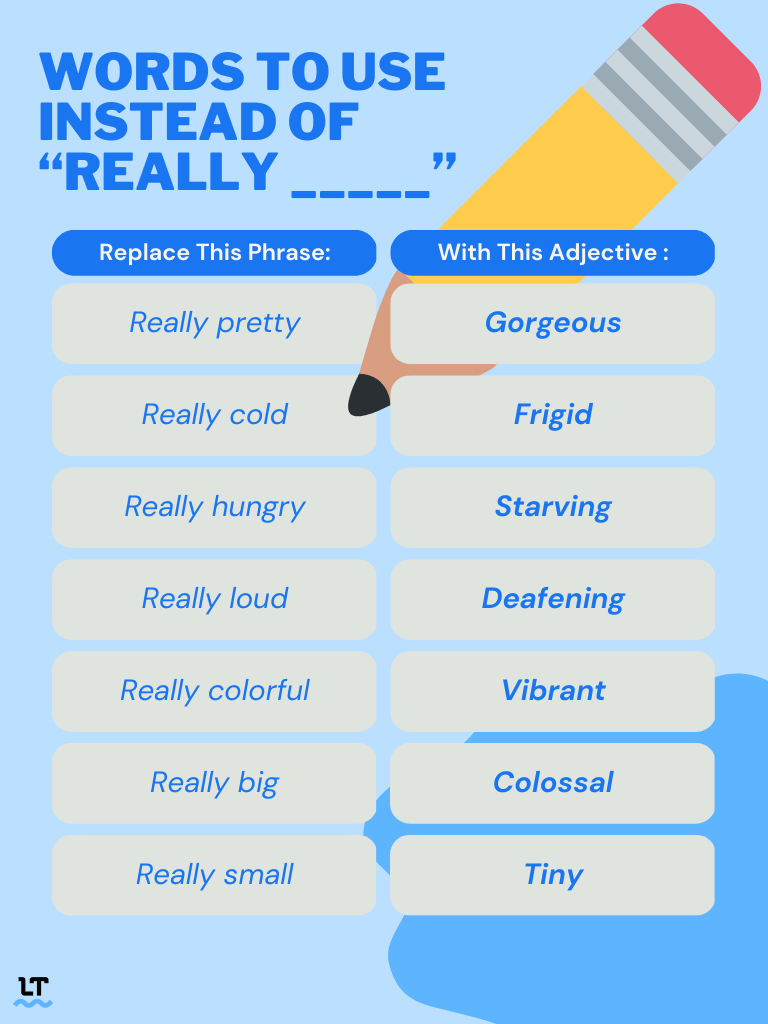Synonyms of “Really”
Really can be used as an intensifying adverb that means “extremely.” A few synonyms you can use instead are:
- Especially
- Extremely
- Particularly
- Seriously
- Totally
What’s Wrong With the Word “Really”?
Really is an adverb that has a few different meanings. Like very, it can be used as an intensifier that means “to a great degree.”
I’m really excited.
Also like very, the word really tends to be overused. Not only are there more advanced synonyms that can be used, but there are other techniques that can help remove really from your vocabulary and improve your writing altogether. We’ll explore them below.
Use Synonyms: Five Other Words for “Really”
Numerous synonyms can be used in place of really. We’ve narrowed them down to five words you can use instead. It’s important to remember, though, that the options below are synonyms for really when used as an adverb that means “extremely.”
1. Especially
I’m really concerned about the budget.
I’m especially concerned about the budget.
2. Extremely
Tori is really knowledgeable in that field.
Tori is extremely knowledgeable in that field.
3. Particularly
What’s really impressive is that it was built centuries ago.
What’s particularly impressive is that it was built centuries ago.
4. Seriously
It was a really good time.
It was a seriously good time.
5. Totally
Charlie was really thrilled to be working on the project.
Charlie was totally thrilled to be working on the project.
Use Stronger Adjectives
As we already stated, there are a seemingly endless number of words that can take the place of really. A better option is using stronger, more accurate adjectives.
For example, instead of saying really hungry you can say starving. Doing this elevates your writing because you’re using more advanced and concise vocabulary.
Here are a few more examples of adjectives that can replace phrases using really::

There’s Another Particularly Easy Way To Better Your Writing
Trust us. Avoid using really as an intensifying adverb—either by using a synonym or a more advanced adjective—and watch how drastically the flow improves.
Something else you can do as a writer to go from really average to extremely skilled is to use LanguageTool as your writing assistant. This advanced spelling and grammar checker does so much more than correct errors. It also makes stylistic suggestions, like replacing really good with superb.
Did we mention it supports over 30 languages and is free to try? Give it a go.

